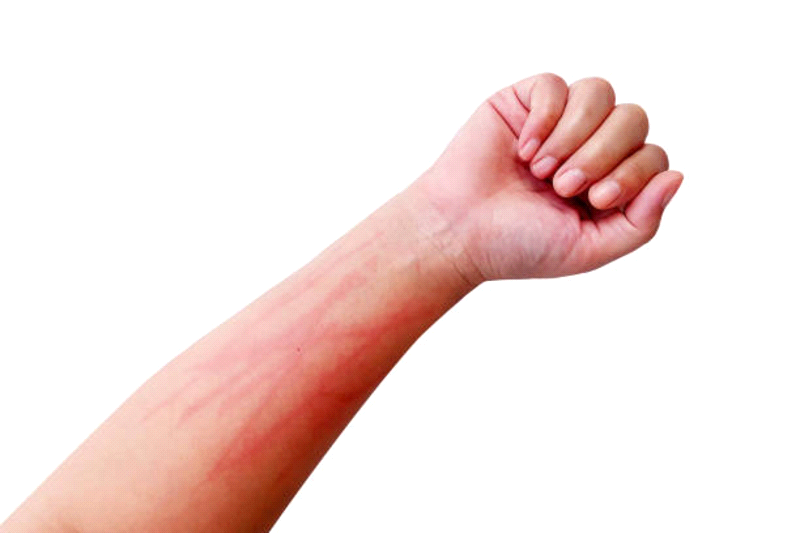Understanding Treatment Options for Hives (Urticaria)
Dec 30, 2023 By Madison Evans
Experiencing hives, or urticaria, can be a frustrating and bothersome condition and it’s understandable if you’re feeling overwhelmed when considering the best treatment options. From over-the-counter medications to home remedies, this post will provide an overview of the possibilities so that you can make an informed decision about how to approach your care. We'll look at what causes hives so that anyone dealing with this problem may also have insight into possible ways to prevent flare ups from occurring in the future.
Overview of Hives (Urticaria): What is it?
Hives, also known as urticaria, is a common skin condition characterized by raised, red, and itchy bumps.
Causes:
It can be caused by a variety of factors, including;
- An allergic reaction to food
- Medication
- Insect bites
- Stress and certain medical conditions.
Symptoms:
Symptoms typically include;
- Itching
- Swelling
- Redness
In some cases, hives can be the result of an underlying health condition or serious allergic reaction. If you suspect you have hives, it's important to seek medical attention to determine the underlying cause and receive proper treatment.
Diagnosis for Hives (Urticaria):
Urticaria or hives can be a frustrating condition to diagnose due to its wide range of causes and manifestations. With proper examination and testing, a skilled physician can help identify the type of urticaria and recommend a course of action.
Different Types:
There are several types of hives, such as;
- Acute urticaria
- Chronic urticaria
- Physical urticaria, and more.
A complete medical history is often the best starting point, followed by a thorough physical examination.
Tests and Examinations:
Testing may include;
- Bloodwork
- Allergy tests
- Skin biopsies, and more.
By working with a healthcare provider to get a proper diagnosis, those with urticaria can begin to manage their symptoms effectively and improve their quality of life.
Treatment Options for Hives (Urticaria):
For those who suffer from hives (urticaria), the constant itching and welts can be both frustrating and uncomfortable. There are a variety of treatment options available to help alleviate symptoms. Medications such as antihistamines and corticosteroids can be prescribed to ease itching and inflammation. Allergy shots may also be recommended to help reduce the severity of an allergic reaction. Some individuals may benefit from making dietary changes such as avoiding trigger foods or increasing the intake of anti-inflammatory foods
Home Remedies for Hives (Urticaria): Natural Solutions to Ease Discomfort:

There are some natural remedies that can help alleviate the itching and discomfort associated with hives. Aloe vera, for example, has powerful anti-inflammatory properties that can soothe irritated skin.
Taking a cool bath with oatmeal or baking soda can help relieve the itchiness and redness. It's important to note that not all home remedies may work for everyone, and it's always best to consult with a healthcare professional before trying any new treatment.
When to See a Doctor with Hives (Urticaria)?
Hives, or urticaria, can be an uncomfortable and worrisome experience. While they are often harmless, it is important to know when to seek medical attention in case of emergency. If you experience hives along with difficulty breathing, swelling in the mouth or throat, or a rapid heartbeat, it is critical to seek immediate medical help. These could be signs of anaphylaxis, a severe and potentially life-threatening allergic reaction.
Conclusion:
If you are suffering from hives (urticaria), be sure to speak to doctor and take the appropriate steps towards managing the condition. Remember that while some treatment plans may work for others with hives, you may need to tweak parts of your plan, so it works best for you. Educating yourself on various treatments and home remedies can help support the conversation with your doctor and ensure you make an informed decision for yourself. As Neil Postman wrote “Everybody does not have to learn everything, but everybody needs to learn something”--so try learning more about your condition in order to find the right approach for your body and lifestyle.







